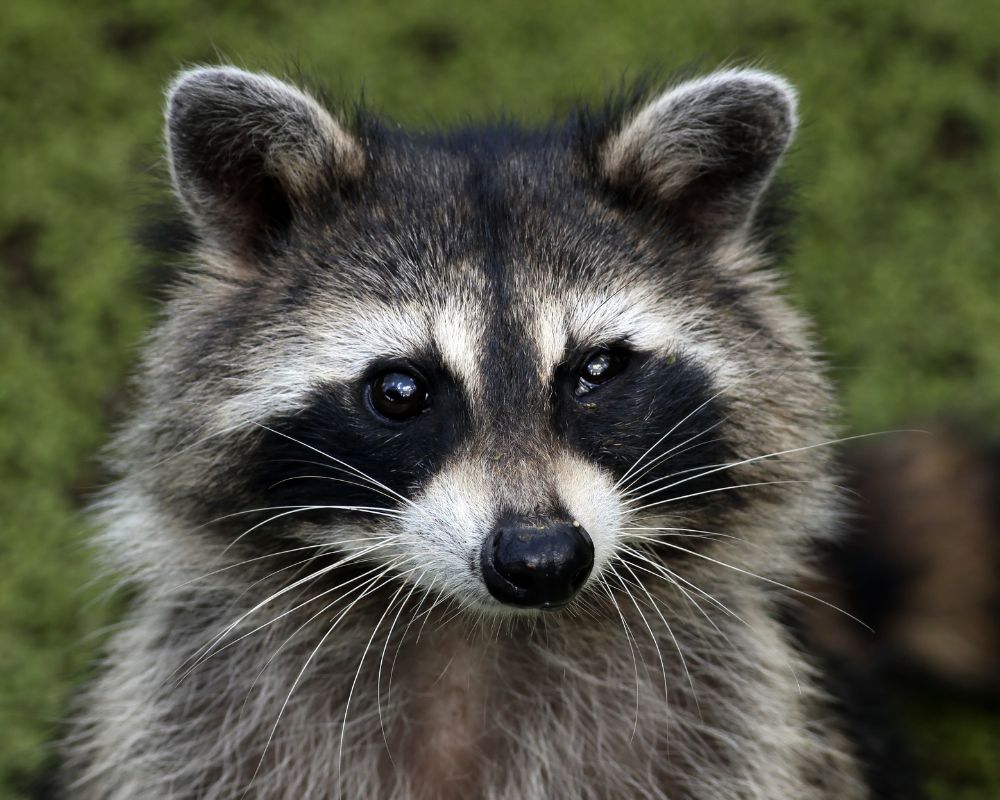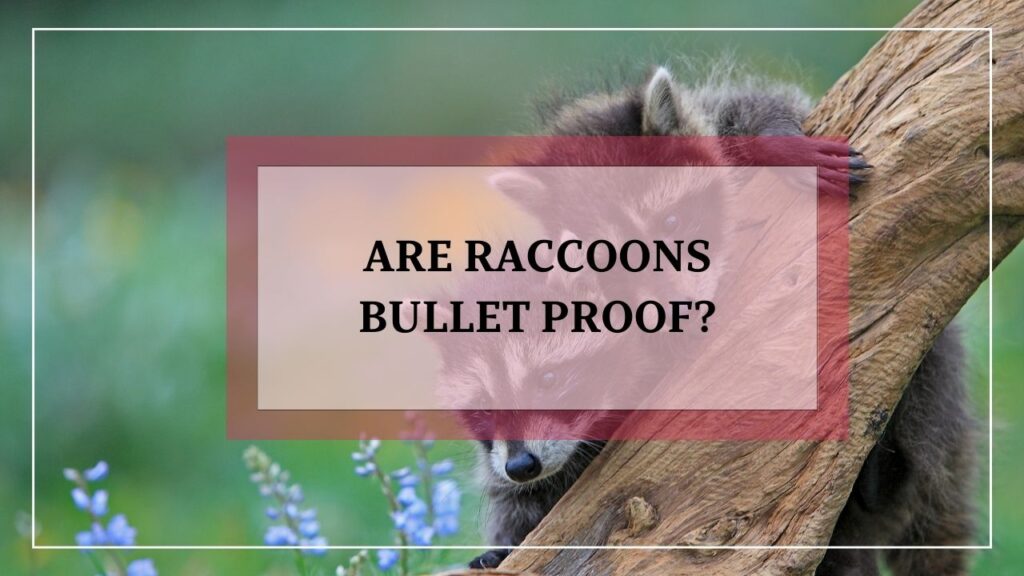Raccoons have long been known for their clever and resourceful nature, but there is a persistent rumor that they are also bulletproof. This belief has led to many people questioning whether it is true or not.
In this article, we will explore the various claims of raccoon bulletproof ness, and examine the scientific evidence to determine the truth behind this urban legend. Whether you are a hunter, a wildlife enthusiast, or simply curious, this article will provide the information you need to separate fact from fiction when it comes to raccoons and bullets.
The short answer is no, raccoons are not bulletproof. Raccoons, like all living organisms, are made up of delicate biological systems that can be easily damaged or destroyed by bullets. While raccoons may be able to evade predators or humans in their natural environment, they are not invincible and can be killed just like any other animal.
How Raccoons can act against bullets?
Raccoons do not have any special abilities to act against bullets. They are wild animals and cannot defend themselves against bullets. If a raccoon is shot, it will likely be killed or injured. It’s illegal to shoot raccoons in many areas, and it’s best to contact a professional for humane control methods if there is a problem with raccoons in your area.
What is the reason behind the rumor that raccoons are bulletproof?
The rumor that raccoons are bulletproof is not based on any scientific evidence. It is likely an exaggeration or a myth that has been spread through word of mouth. Raccoons, like all animals, are not bulletproof and can be killed or injured by gunfire.
One possible reason for this rumor is that raccoons have a thick layer of fur and fat that provides them with insulation from the cold. This may give the impression that they are harder to hurt or kill. Additionally, raccoons have a strong immune system which helps them to fight off many types of infections and diseases, including rabies. This may have led some people to believe that they are resistant to other forms of injury as well, including bullets.
How do Raccoons Defend Themselves?

Raccoons are wild animals, and they have several ways of defending themselves :
1. Good Sense Of Balance
Raccoons have a highly developed sense of balance, which allows them to move easily and gracefully along narrow branches and other precarious surfaces. This is due to their highly developed inner ear, which contains specialized structures called semicircular canals that help to detect changes in angular momentum and maintain balance.
Additionally, raccoons have long, agile fingers and toes that allow them to grasp and hold onto objects, further enhancing their sense of balance. This adaptation is crucial for raccoons as they are opportunistic omnivores and often forage for food in trees and other elevated areas. It also allows them to climb trees and escape from predators on the ground.
2. Sharp Claws
Raccoon’s sharp claws play an important role in defending themselves. They use their claws to climb trees and escape from predators, as well as to catch and hold on to food. Raccoons have five fingers on each hand, and each finger has a sharp claw.
They are also used to defend themselves against predators, such as dogs and coyotes, as raccoons can use their claws to inflict damage and escape.
3. Strong Immune System
The raccoon’s immune system plays an important role in defending itself against disease and infection. Raccoons have a robust immune system that can fight off a wide range of pathogens, including bacteria, viruses, and parasites. This is accomplished through a combination of different immune system components, such as white blood cells, antibodies, and various immune molecules.
White blood cells, also known as leukocytes, are the primary cells of the immune system that are responsible for fighting off invading pathogens. They can recognize and attack foreign invaders, such as bacteria and viruses.
The raccoons also have an adaptive immune system, which produces specialized proteins called antibodies that can specifically target and neutralize pathogens.
Additionally, raccoons also have a variety of immune molecules, such as cytokines and chemokines, that help to coordinate the immune response and attract other immune cells to the site of infection.
The raccoons also have a specific mechanism to fight off rabies, which is a virus that affects the central nervous system and can be fatal if left untreated. They have a higher number of immune cells in the brain, which makes it harder for the virus to infect the brain.
Overall, the raccoon’s immune system is an important defense mechanism that helps protect the animal from infection and disease.
4. Raccoons Are Nocturnal Animals
Raccoons are nocturnal animals, which means that they are active at night and sleep during the day. This behavior helps them avoid being attacked by humans, as they are less likely to be seen or disturbed while they are active. [1]
Additionally, the darkness of night makes it more difficult for humans to shoot them, as they are harder to spot and aim at.
This nocturnal behavior also helps raccoons avoid other predators, such as birds of prey, which are typically active during the day.
It’s important to note that Raccoons can also carry diseases that can be transmitted to humans and domestic animals. If you come across a raccoon, it’s best to keep your distance and let it go about its business. If you have a problem with raccoons, it’s best to contact a professional for humane control methods.
Is It Illegal To Shoot Raccoons?
It depends on the laws of the specific area you are in. In some states and municipalities, it is legal to shoot raccoons on your property if they are causing damage or if they are considered a threat to human health and safety. However, in other areas, it may be illegal to shoot raccoons or to do so without a permit. It is important to check with your local authorities to determine the laws and regulations regarding raccoons and other wildlife in your area.
The Bottom Line
To summarise, raccoons are not bulletproof. They are wild animals and do not have any special abilities to defend themselves against bullets. The rumor that raccoons are bulletproof is not based on any scientific evidence and is likely a myth that has been spread through word of mouth.
Raccoons do have several natural defenses such as a good sense of balance, sharp claws, and a strong immune system. But these defenses are not enough to protect them against bullets.
It is illegal to shoot raccoons in many areas, and it’s best to contact a professional for humane control methods if there is a problem with raccoons in your area.

